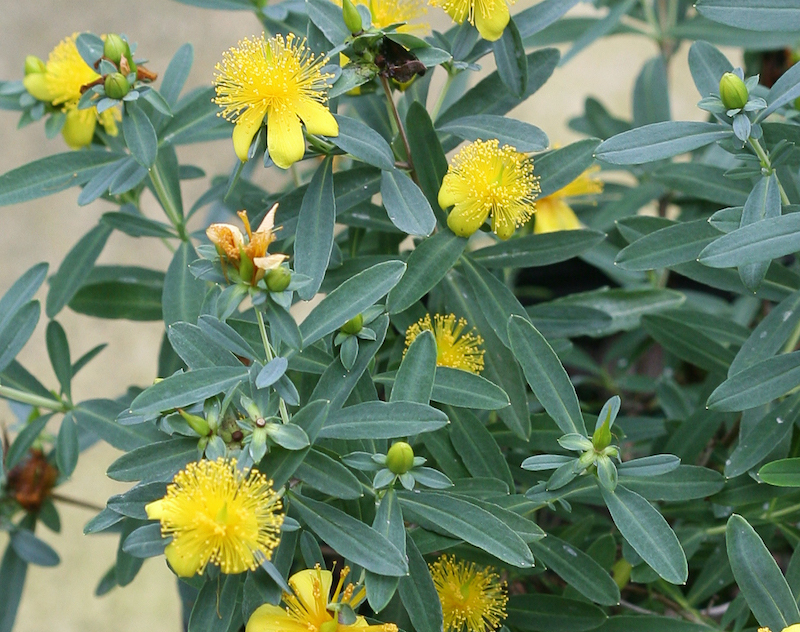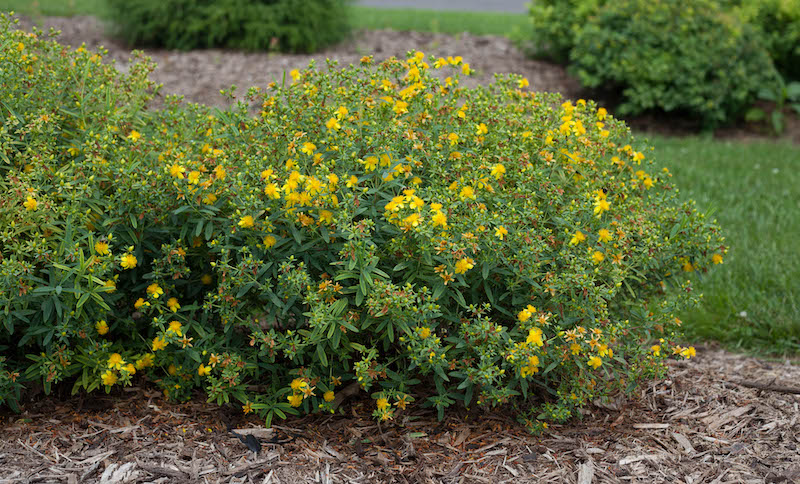St. John’s Wort is a hardy perennial or shrub and will benefit from an annual feeding early in the spring to support blooming and berry production. In average or moderately fertile soil, this plant typically needs just one application of a balanced, slow-release fertilizer. St. John's Wort also benefits from a topdressing of compost in the spring, especially in poor soil.

How to Fertilize St. John’s Wort
St. John’s Wort grows well in just about every soil type and pH level. Fertilizing in the early spring with a balanced, slow-release fertilizer will support healthy growth of all parts of the shrub. Lightly scratch a granular feed into the soil around the root zone. The granules will slowly dissolve into the soil every time the plant is watered.
The slow-release formulas deliver nutrients in smaller doses over a longer period. Be careful to brush any fertilizer off the foliage to prevent leaf burn. Always water in granular fertilizers at the end of the application.

Best Time To Fertilize St. John’s Wort
Apply fertilizer early in the spring as the shrub comes out of dormancy. The plant's roots will be growing and eagerly seeking out moisture and nutrition. Typically, one application of a slow-release granular feed is sufficient for the entire growing season. Feeding shrubs late in the summer or fall is not recommended since the plants do not need as much nutrition as they prepare for dormancy.
Best Fertilizer For St. John’s Wort
Slow-release, granular fertilizers work best for shrubs planted in the ground. Look for one that has a balanced ratio of nitrogen, phosphorus, and potassium (NPK), such as a 10-10-10 formula. A balanced NPK ratio will benefit general overall growth, including blooming and berry production.
If blooming and berry development start to decline, use a formula rich in phosphorus and potassium the following spring, such as a 1-3-2 formula. Phosphorus and potassium support flowering and root formation. Brands such as Fox Farms and Espoma have such blends specifically designed for flowering shrubs.
St. John’s Wort Fertilizing Tips
- One application of a slow-release, balanced fertilizer early in the spring will support season-long growth
- Use a fertilizer made for blooming shrubs if flowering or fruiting declines
- Late-season fertilizing will disrupt the plant's preparation for dormancy
Warnings
-Always wear protective gloves and a face mask when handling chemical fertilizers.
-Closely follow all directions and storage guidelines that are on the fertilizer label.
 |
Author Robbin Small - Published 8-15-2022 |
